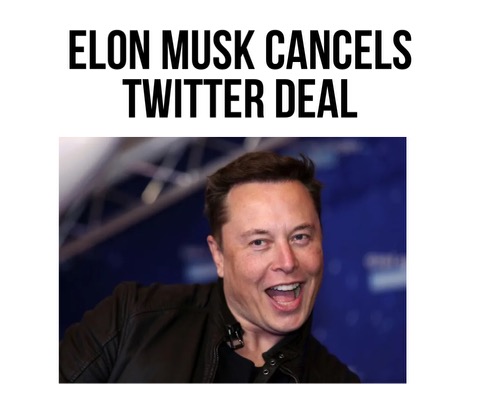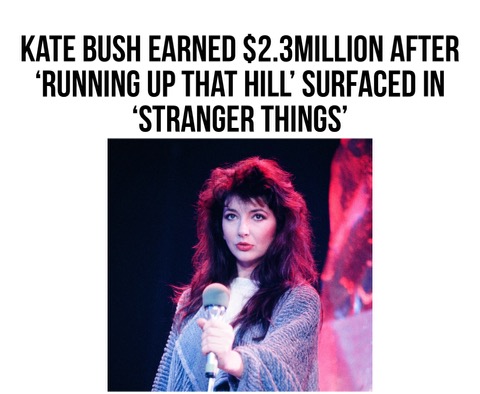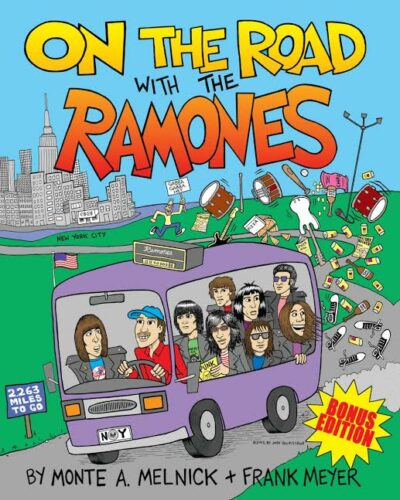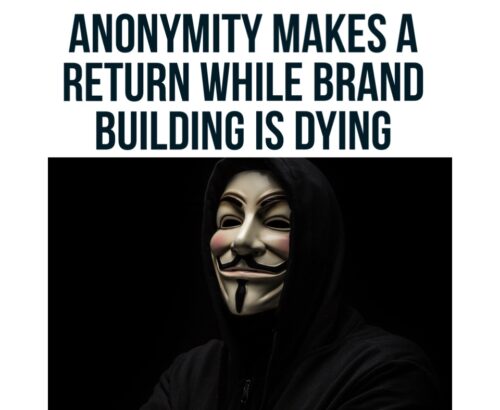
Elon Musk has cancelled the Twitter deal. The deal was pulled because Musk cannot verify authentic Twitter accounts.
“My offer was based on Twitter’s SEC filings being accurate,” Musk previously said in a tweet. “Yesterday, Twitter’s CEO publicly refused to show proof of <5%. This deal cannot move forward until he does.”
A letter sent by the Telsa CEO’s legal team to Twitter on Friday said that the agreement was being “terminated” due to Twitter allegedly making “false and misleading representations” regarding “fake or spam accounts on Twitter’s platform.” Twitter’s stock price sunk following the statement, dropping 5.3 percent after the market closed.

Singer Kate Bush has garnered new fans after her 1985 hit Running Up That Hill appeared in Netflix’s hit show Stranger Things. She also made out big earning about $2.3 million in streaming royalties according to Luminate. She also owns the copyright to her recordings, and will keep the bulk of that money.
Stranger Things 4 hit 1 billion hours viewed which makes the show the second most-watched Netflix season ever, after Squid Game in 2021. It was in Netflix’s Top 10 in 93 different countries this weekend, the company says.

The FCC is calling on Apple and Google to remove TikTok from its App Stores claiming national security concerns.
The FCC commissioner said ByteDance, a Chinese-based parent company is beholden to the Chinese government and required by law to comply with (Chinese government) surveillance demands. The FCC has claimed ByteDance staff had accessed US TikTok users date repeatedly and is out of compliance.
TikTok has openly admitted it can access user data outside of the U.S. including China.

Hey All, I just wrapped up a podcast with the former tour manager of The Ramones. He said some things for the first time including how The Sex Pistols really ruined it for The Ramones. The band wanted radio play and MTV rotation, but the mainstream media ignored The Ramones because they associated the band with the Sex Pistols who they didn’t like because of their bizarre behavior.
Monte A. Melnick, The Ramones Tour Manager thinks the legendary punk band never achieved mainstream success because of The Sex Pistols. Monte A. Melnick told Dean Cramer in a podcast that The Ramones kept on changing producers because they wanted to get the hit. The band worked with the famous Phil Spector but couldn’t get on the radio. “I think The Sex Pistols poisoned the whole atmosphere in the states” says Monte A. Melnick.

Is the Personal Brand beginning to die? For the last decade everything was a brand from a person to a dog. Even if you could monetize a video of a squirrel, would it be worth it? The new generation is a choosing a life of anonymity because they learned that having a public profile isn’t all glitter & gold.
TikTok is the perfect dopamine depleter causing depression and anxiety among teens. More than that, most teens know that while boosting your public profile is a great ego boost, it can come with a frightening cost like bullying and online harassment.
Society created a level of narcissism that turned everyone into show dogs, from the cleaning person to a CEO of a Blue Chip boring company. Society also demanded that everyone who lives life, must live life publicly.
For the general public, building up a public profile has been exhausting with no financial benefit that came with a loss of losing privacy.
The artist are finally grasping the pitfalls of personal brand building. Being elusive and mystique is good. Plus, creating something really good requires time away, not time online. Moderation is key. Churning out content week after and week is a quick path to burnout.
The new generation is heading back to sites like TUMBLR, a platform that doesn’t feed off personal branding and a public image. Even journalists have seen an uptick of sources wanting to remain anonymous.
Your digital footprint can last forever, and since many people know they’ll be a different person in 10 years, anonymity makes a return.